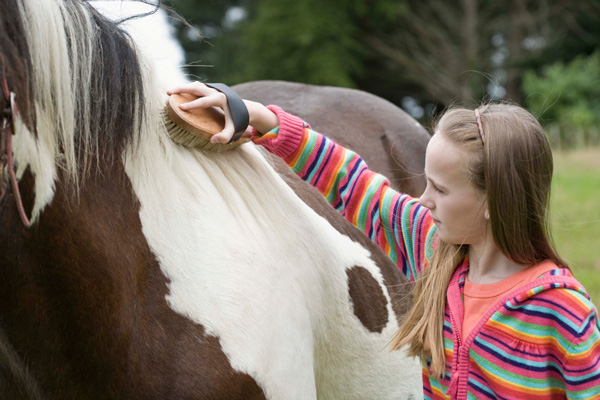
With grass beginning to grow and new foals out in the fields, most of North America is beginning to put the unusually severe winter behind it. As horse owners look at dwindling hay supplies, they may wonder what effect the past winter will have on this year’s hay and grain harvests. Will plenty of hay be harvested before autumn, and will horse feed prices fall, rise or stay about the same? Here’s what climate and crop experts are saying.
As with any year, some parts of the United States will be in better shape than others. California and the southwestern states are still deep in drought. Planting won’t be delayed by cold temperatures, but possible water restrictions later in the summer could be a problem because soil moisture level is too low to sustain plants through the growing season. On the other hand, much of the country west of the Mississippi River should have fairly normal spring conditions, and planting should proceed as in other years.
States north of the Ohio River and as far west as Minnesota have been in a deep-freeze for months, and the ground is only slowly warming up. Planting of warm-season crops like corn and soybeans will have to wait until the soil temperature is in the mid-50s. If these seeds are sowed too early into cold ground, they will germinate very slowly or not at all, wasting money and requiring replanting later in the spring.
Ground water is also very cold in these areas, as is water from the frozen-over Great Lakes. This reservoir of low temperature influences the speed with which soil warms in the immediate area, and also in regions somewhat to the south and east. Some cooling effect might last for weeks or even months, even when air temperatures rise and sunshine is abundant.
Farmers can’t work ground that is too wet, as is the case in states west of the Appalachian Mountains and on both sides of the Mississippi River. Repeated snowfalls have saturated the soil, and normal spring rains could cause flooding in some areas and further delay agricultural work.
New England and East Coast states should not experience severe delays in planting, although late frosts in any area could threaten emerging crops. Florida has experienced some unusually cold weeks, but this area should have good growing conditions as the spring progresses.
Although there will be some delays in planting and forage growth over much of the country, good summer weather could support reasonable yields of hay and grain. A spring and summer that are too hot, cool, wet, or dry could decrease harvests and push feed and hay prices up by fall. Long-range weather predictions do not come with any sort of guarantee, so horse owners might want to contract early for next winter’s hay supplies.
For more nutrition information from Kentucky Equine Research or to ask questions of their nutrition team, visit KER.com.


